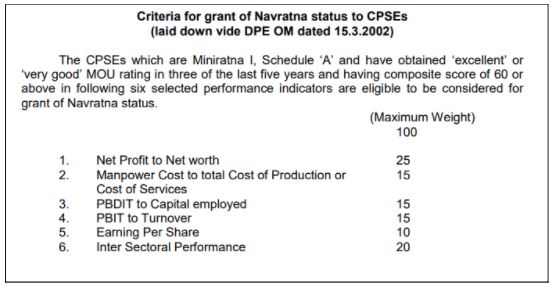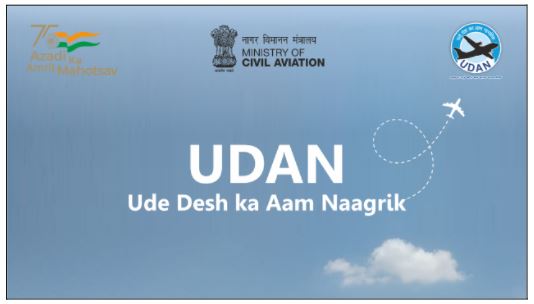Parliamentary Committee on Public Undertakings recently submitted a report on ‘Airports Authority of India’, in which it evaluated the physical and financial performance of AAI, operational and organizational matters, and the implementation of the UDAN scheme, among other issues. The committee also asked the government to pursue the change of the code of Gaya airport which is currently ‘GAY’ with the IATA.
The Airports Authority of India (AAI) is a statutory authority under the Ministry of Civil Aviation (MoCA), which is responsible for the integrated development, construction, expansion, maintenance and modernisation of air traffic services, passenger terminals, and cargo services in the country. Its responsibilities also include the provision of communication, navigation and surveillance, provision of passenger facilities and related amenities at its terminals thereby ensuring safe and secure operations of aircraft, passengers, and cargo in the country. A total of 137 airports including 24 International airports (3 Civil Enclaves), 10 Custom Airports (4 Civil Enclaves) and 103 Domestic airports (23 Civil Enclaves) are being managed by the AAI. It provides air navigation services over 2.8 million square nautical miles of air space.
Action taken report on Airports Authority of India was tabled recently
In January 2021, the Parliamentary Committee on Public Undertakings (2020-21) submitted a report on the ‘Airports Authority of India’. In the report, the committee evaluated the physical and financial performance of AAI, operational and organizational matters, and the implementation of the UDAN scheme, among other issues. A total of 43 forty-three observations/recommendations were listed by the committee of which 35 of them were accepted by the government while the committee does not desire to pursue 5 in view of the government’s response, and 3 for which the committee did not accept the response of the government. These details are available in the committee’s Action Taken Report on AAI that was tabled recently.
Among many recommendations, the committee had suggested that AAI convert itself into a Company under the Company’s Act, 2013 as it had fulfilled the eligibility criteria for becoming a ‘Navratna’ status company that would help in increasing transparency, accountability and enhanced functional & financial autonomy. In 2019, AAI became a Miniratna Category – I Central Public Sector Enterprise (CPSE) which gave the board of AAI the Financial Powers to invest capital expenditure up to Rs. 500 crores without Government approval. For Navratna CPSEs, this investment is permitted up to Rs.1000 crores.

However, for the re-incorporation of AAI as the company would result in fundamental changes in corporate structure, functioning and governance of AAI, the consultants noted adding that either prior amendment of the AAI Act by the Parliament or fresh legislation would be required to deal with the conflicts arising out the incorporation. The opinion of the Department of Legal Affairs is awaited in this matter.
The establishment of trans-shipment hubs across all major airports recommended
Since there was a 56.3% increase in cargo during the period from 2013-14 to 2018-19 and even higher numbers were projected for 2023-24 & 2028-29 period, the Committee had recommended that new trans-shipment hubs and Special Economic Zones at airports be set up to reduce the turnaround time of aircraft and costs at Indian airports. However, as there was no definite response on the issue of establishment of trans-shipment hub at Mumbai and Kolkata, the committee recommended vigorous pursuing of the establishment of trans-shipment hub at Delhi, Mumbai, Chennai, and Kolkata within a definite timeframe while also re-emphasizing on conducting studies to know the feasibility of establishing similar hubs at other major airports in the country.
With respect to passenger services, the Committee had recommended that facilities for reducing check-in time for passengers, assistance to Persons with Disabilities (PWDs), senior citizens and VIPs, help desks, and other services like DISHA to improve the customer experience be provided at all airports in a stipulated time frame to enhance the passengers’ flying experience. However, the Ministry had not indicated any time frame or deadline by which these facilities/amenities would be available to the passengers at various airports in the country. Even with respect to the recommendation calling for proper signages for passengers as well as cab drivers to reduce waiting time, and maintenance of a database of local taxi drivers, the committee pulled up the Ministry for not taking concrete actions.
Measures to reduce bird strike incidents and single-use plastics in airports recommended
The committee had suggested the Government frame an aviation-grade biofuel policy to promote cultivation and commercial exploitation of Sustainable Aviation Fuel. The Ministry stated that the Ministry of Petroleum & Natural Gas had constituted a Committee for the Bio-ATF programme under the Chairmanship of Director (R&D), Indian Oil Corporation Ltd. The Ministry of Civil Aviation (MoCA) is a member of this Committee and there is a collaboration with the Ministry of Road Transport for scaling up the production of biofuel in the country. Though the committee appreciated this, it also added that the government inform them of the progress and impact of such initiatives. Further, in 2019, AAI had declared 85 airports as ‘Single-Use Plastic Free Terminals’ which has been recommended to be expanded to the remaining airports. The committee also highlighted the issue of bird strike incidents that harm passengers and aircrafts and recommended that a study be taken up immediately to identify best practices globally to minimize such incidents.
The Aircraft Accident Investigation Bureau (AAIB)’s duty is to investigate serious aircraft accidents and make recommendations based on findings of investigations whereas the role of the Directorate General of Civil Aviation (DGCA) is the overall management and supervision of the entire gamut of activities like registration, licensing and surveillance of aerodrome, airplanes, operators, flight training, crew and other equipment and regulations. The Committee expressed concern over the independence of the two authorities functioning under the administrative control of the MoCA and asked the Ministry yet again to explain how the independence of these agencies is ensured in their functioning.
India is lagging in 2 out of 8 critical elements of ICAO
Globally, India is one of the major civil aviation markets after China and the US. The International Civil Aviation Organization (ICAO) has mandated 8 critical elements (CE) which are mainly safety defence tools that are required for the effective implementation of safety-related policies. The CEs are Legislation, Organization, Licensing, Operations, Airworthiness, Accident Investigation, Air Navigation Services, and Aerodromes. The committee analysed the data furnished and noted that AAI has not been able to keep pace with world average standards in the effective implementation of these two CEs- Organization and Licensing. The committee felt that the Ministry had elaborated only the reasons behind the poor performance with respect to ‘Licensing’ only while it was silent on ‘Organization’. It asked the government to ensure that the performance is on par with the best in the global level.
Noting the reason behind the delay in landing allegedly due to preferential treatment given to private airlines’ flights over the then government-owned airlines- Air India & Air India Express, the Ministry furnished data on preferential treatment related to some airports. The committee noted that there were more complaints from Air India. The Ministry stated that the mechanism of Collaborative Decision Making (CDM) is robust and allows AAI, the Air Traffic Service Provider and Airline Operations to interact regularly and mutually sort out such issues and develop mutual trust and the committee called for looking into these complaints and ensure fair treatment.
Slow progress in implementation of RCS-UDAN
Under the Regional Connectivity Scheme (RCS) – UDAN, about 100 airports, heliports, waterdromes were identified for revival/development and be made operational by 2024. Of them, 19 were scheduled to be operationalized by 2019-20 and 25 airports to be operationalized by 2020-21. However, as per Ministry’s reply, 35 airports were to be developed by 2020-21 out of which 32 have been completed and 20 of these airports are in operation. Out of 44 targeted airports to be developed, only 20 could be made fully operational by the Government- a shortfall of more than 50% of the target. The committee called for speeding up the work for timely completion of projects to achieve the targets on time.

AAI had conducted only one audit inspection in the past 7 years. The revenue share of AAI from Delhi International Airport saw a decline while that from Mumbai increased. The committee asked AAI to take suo moto action on the declining revenue share trends from Delhi and recommended regular audit inspection to be conducted by AAI.
AACs should be constituted in all airports
The committee also noted that Airport Advisory Committee (AAC) was not constituted in 17 airports. In those airports with AAC, 46 of them did not hold any meetings while some airports had held only one meeting in the last 3 years while the norm was to hold at least one meeting every 6 months. The Ministry’s response to the committee in this matter was that Airport Directors were asked to do so and did not mention the actual status. Noting this, the committee asked for action taken status report of each airport regarding the installation of display boards with details of Airport Director, the opening of exclusive AAI help desk for MPs, development of an app for the use of MP, courtesy treatment at the airports, etc. The committee also recommended constituting AACs at Joint Venture airports.
With respect to budget allocation for the Research and Development of airports, the committee noted that there was no proper data because of which it could not draw any conclusions and asked for an elaborate response from the Ministry.
Government should try to change the code name of Gaya Airport
The committee recommended changing the code name of Gaya Airport in Bihar. The code name for the airport was ‘GAY’ which the committee felt was inappropriate, unsuitable, offensive, or embarrassing for the holy city. The government stated that the matter was raised with the International Air Transport Association (IATA), which said that the location codes are considered permanent and a strong justification primarily considering air safety was required to change any code. The government further stated that Gaya airport IATA code “GAY” has been in use since the operationalization of Gaya airstrip and hence, without a justifiable reason primarily concerning air safety, IATA has expressed its inability to change the IATA code of Gaya airport. The committee re-emphasized the Government to take up the matter with IATA and the concerned organization.


